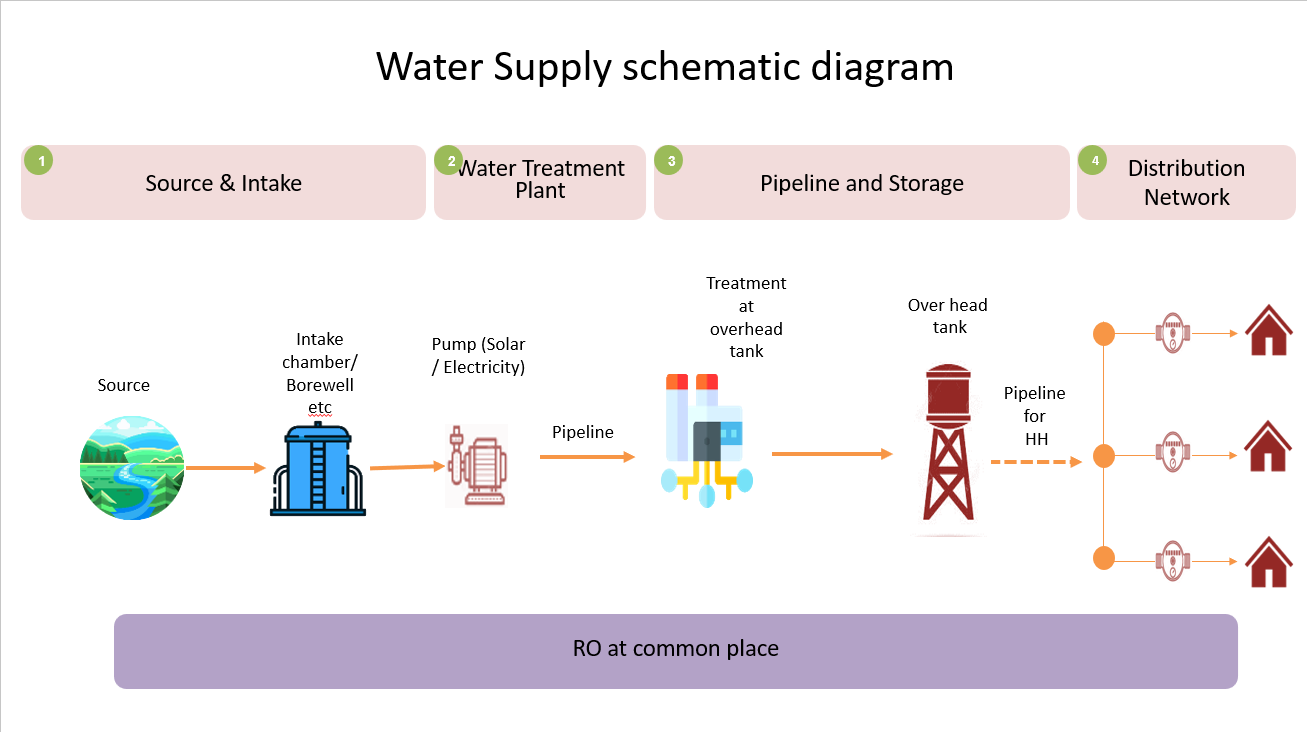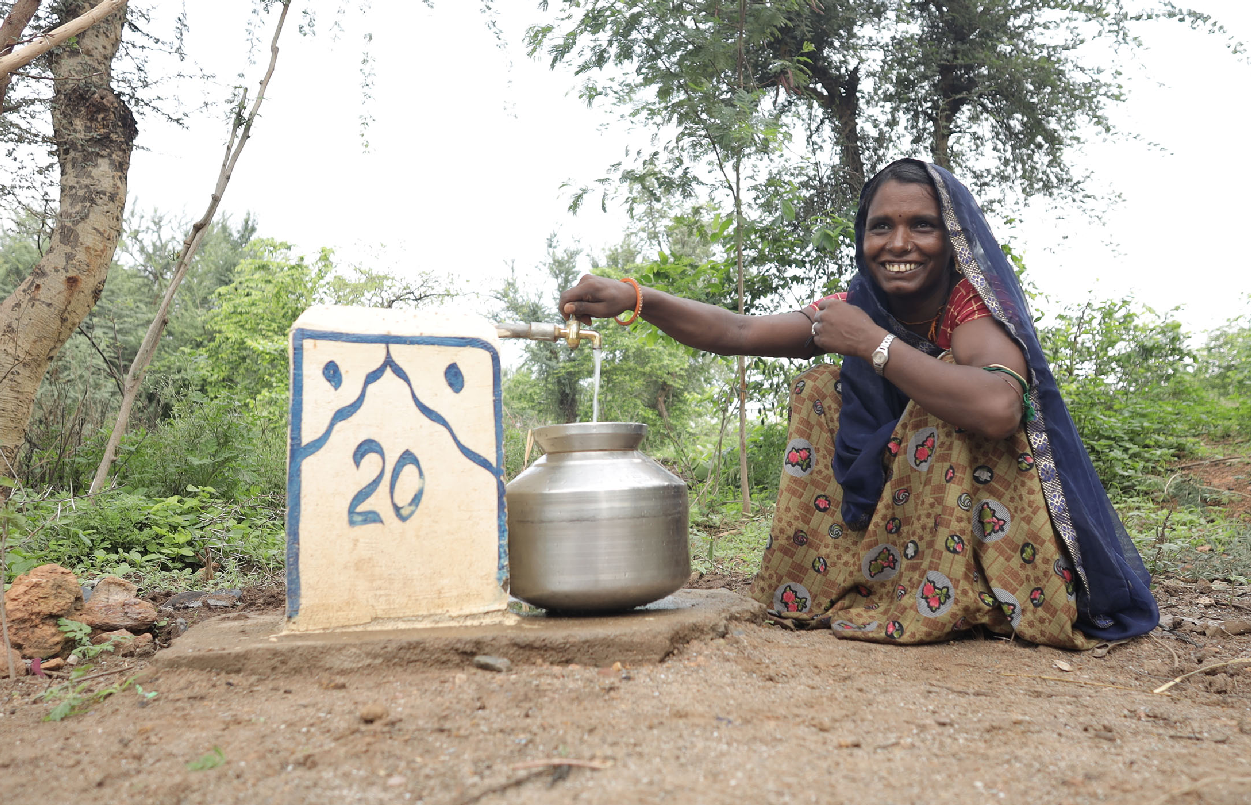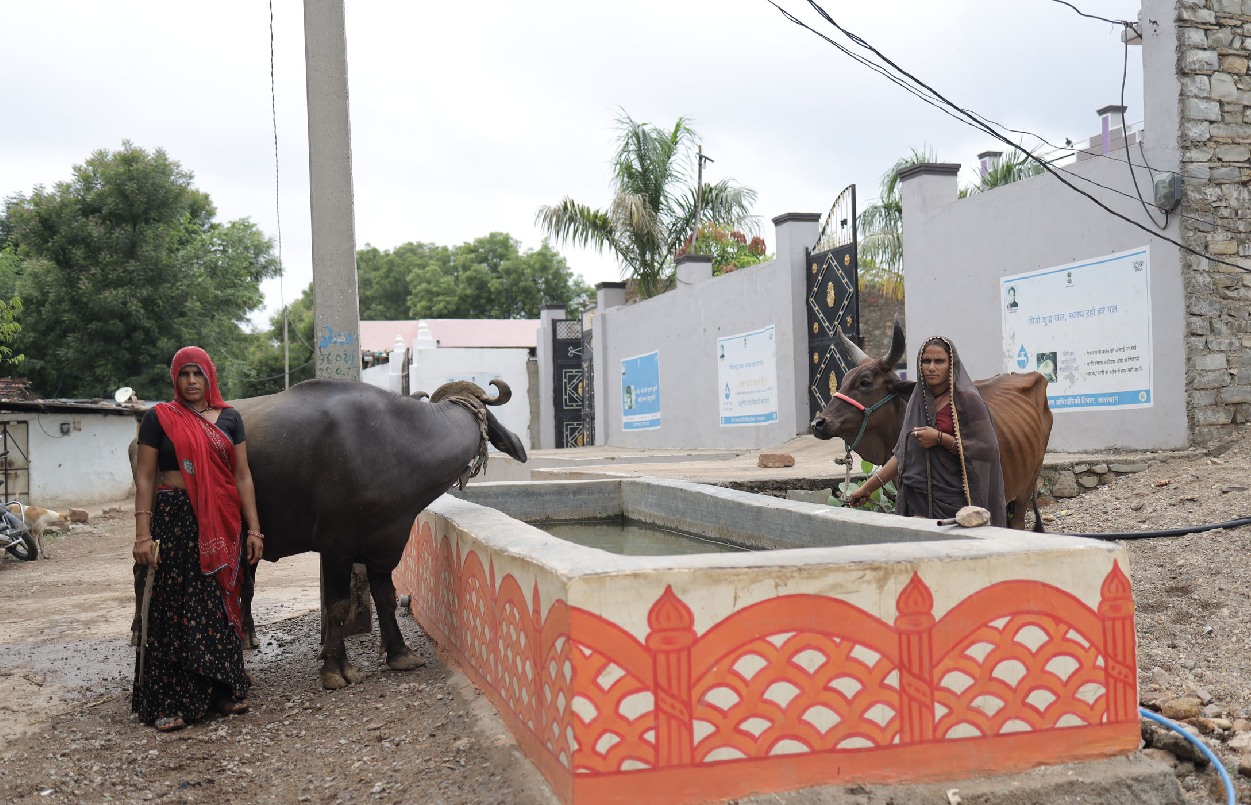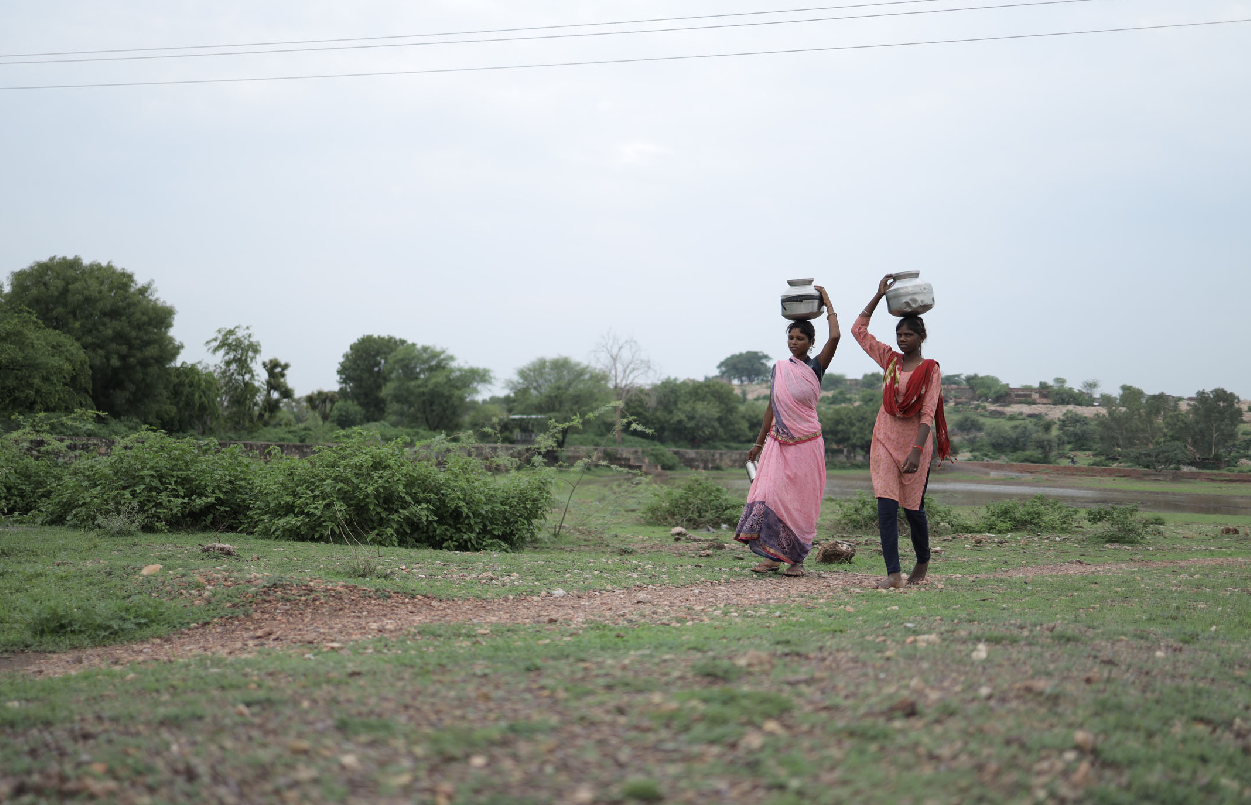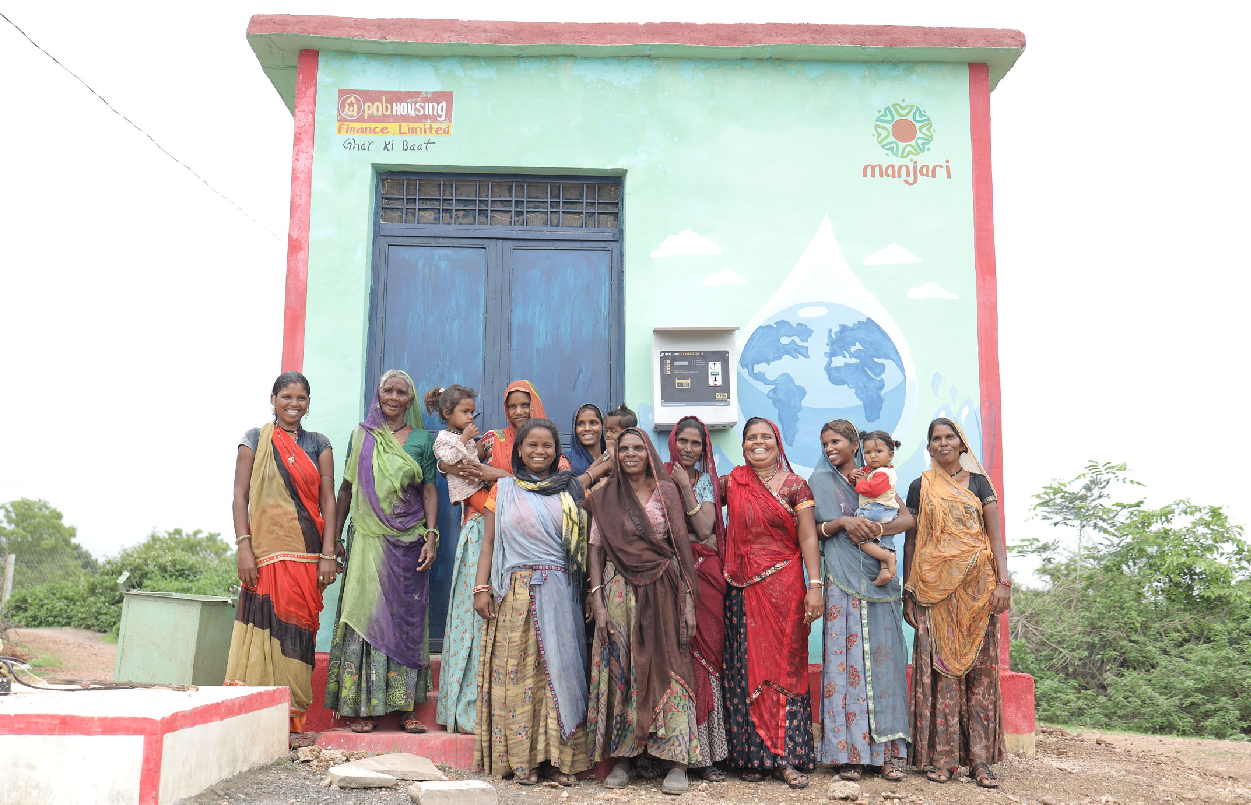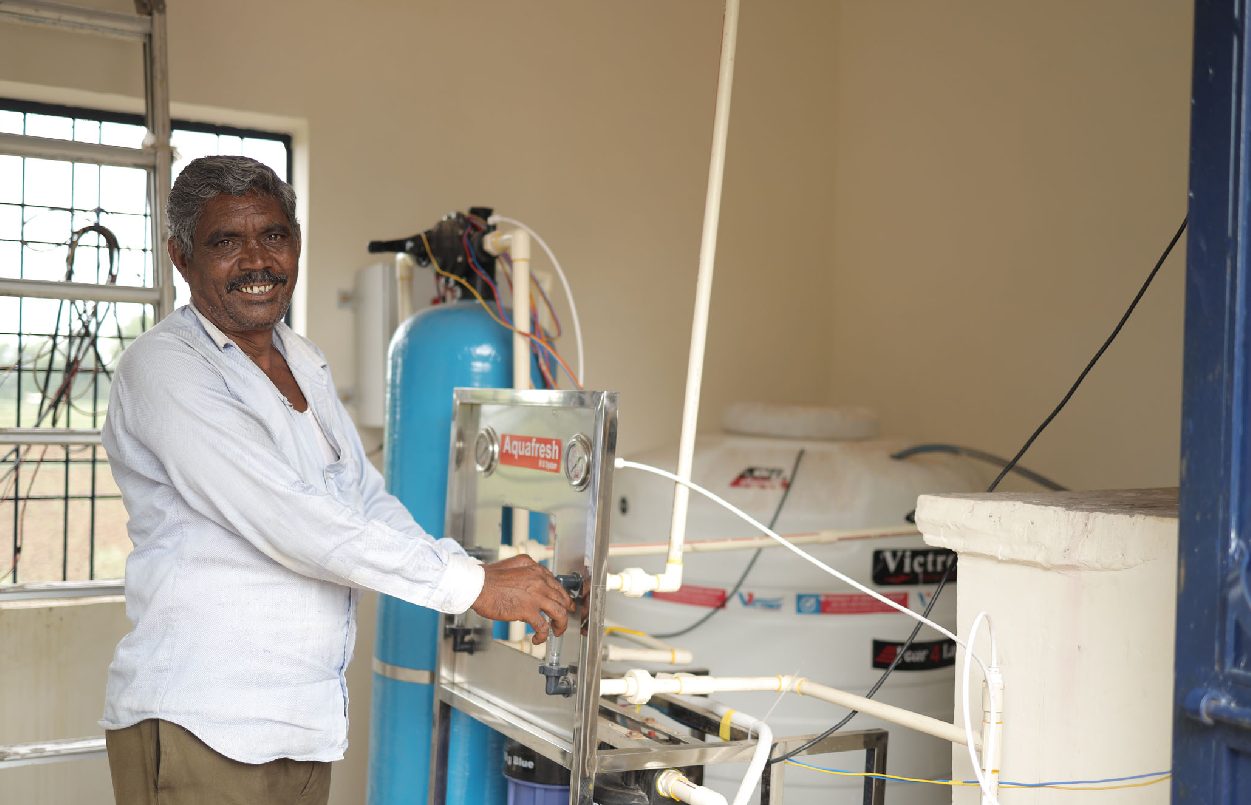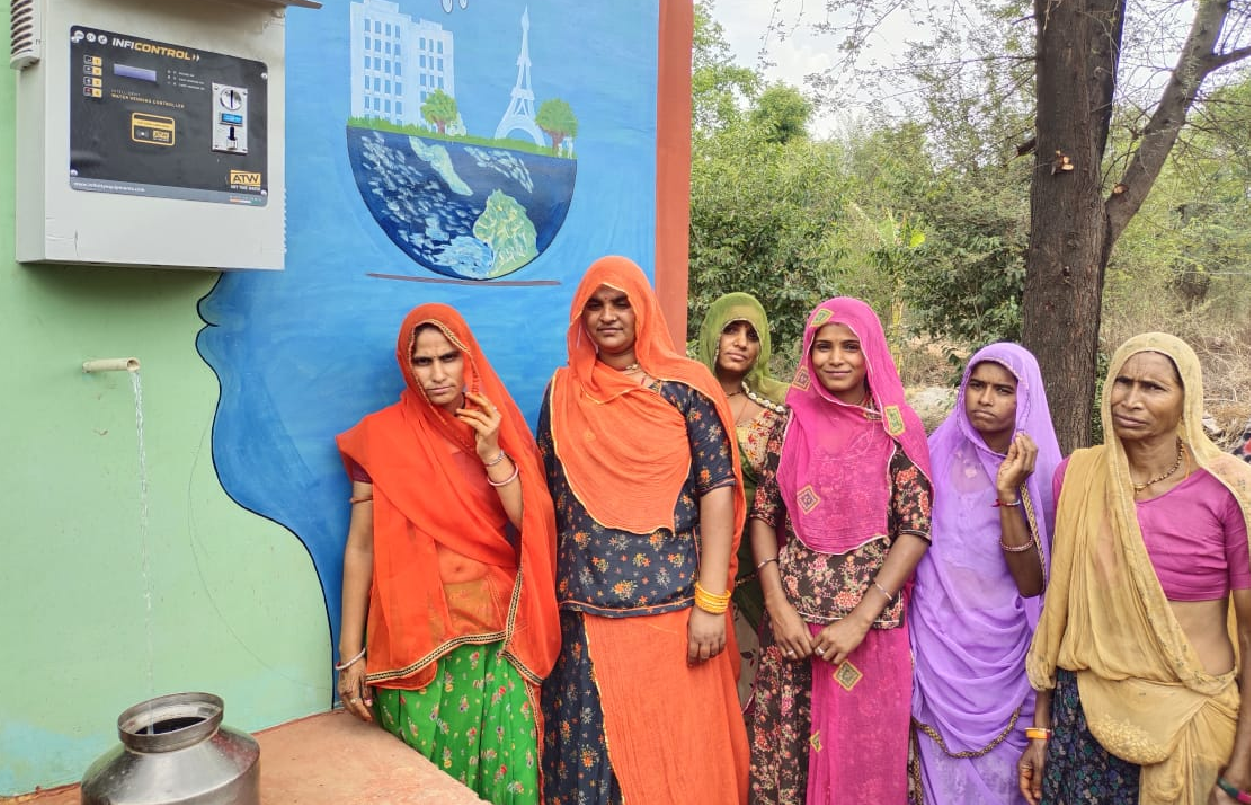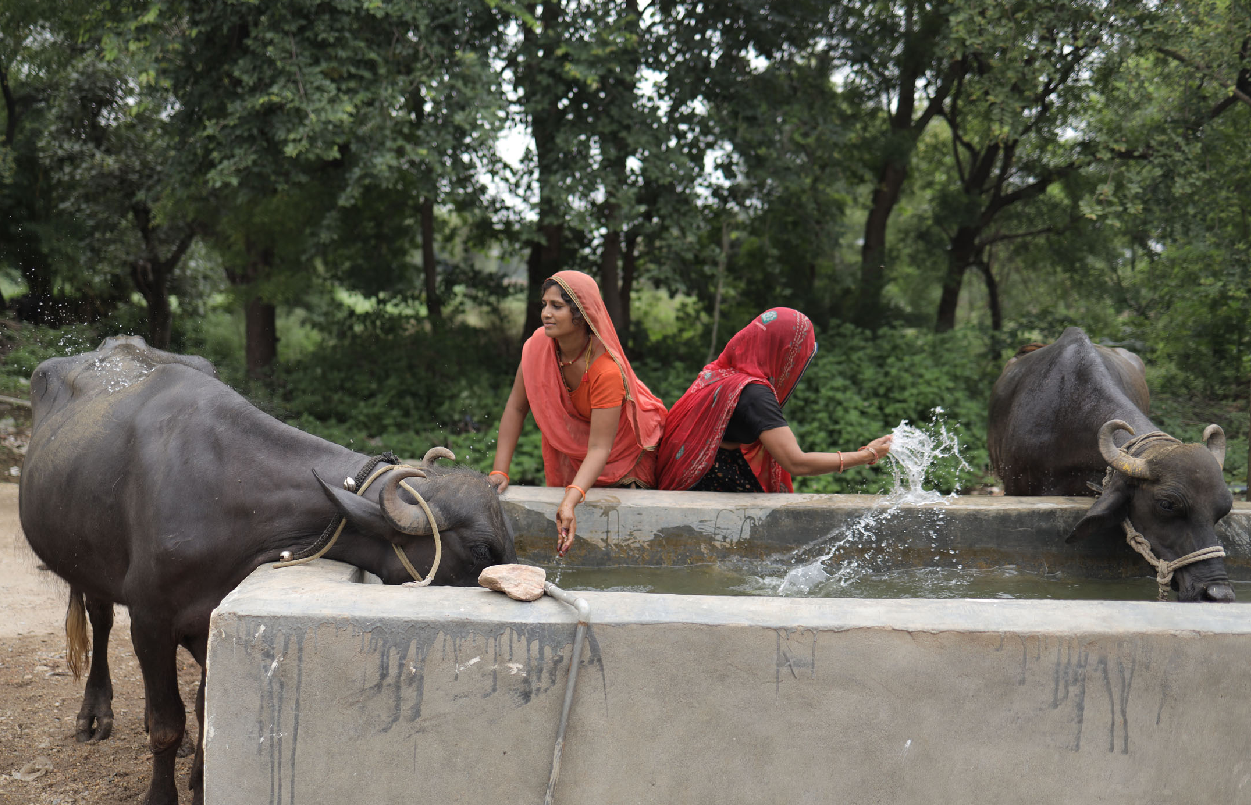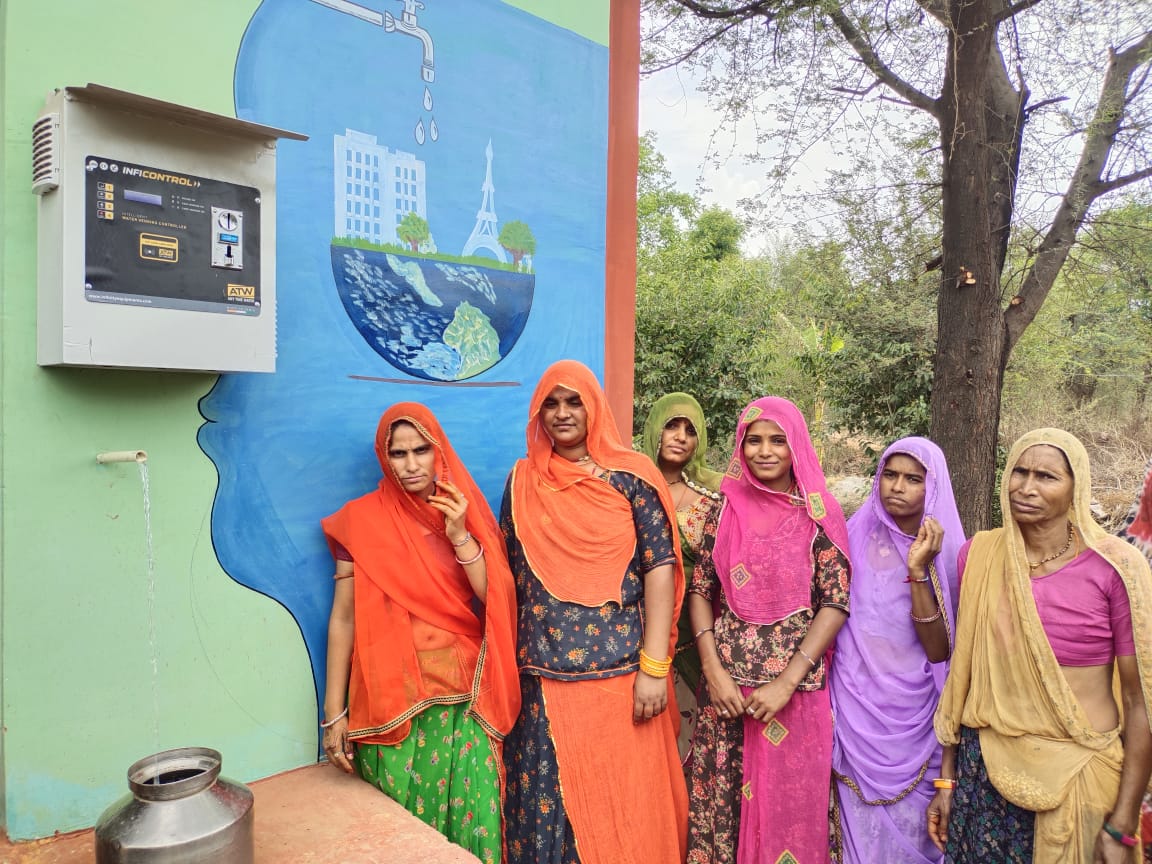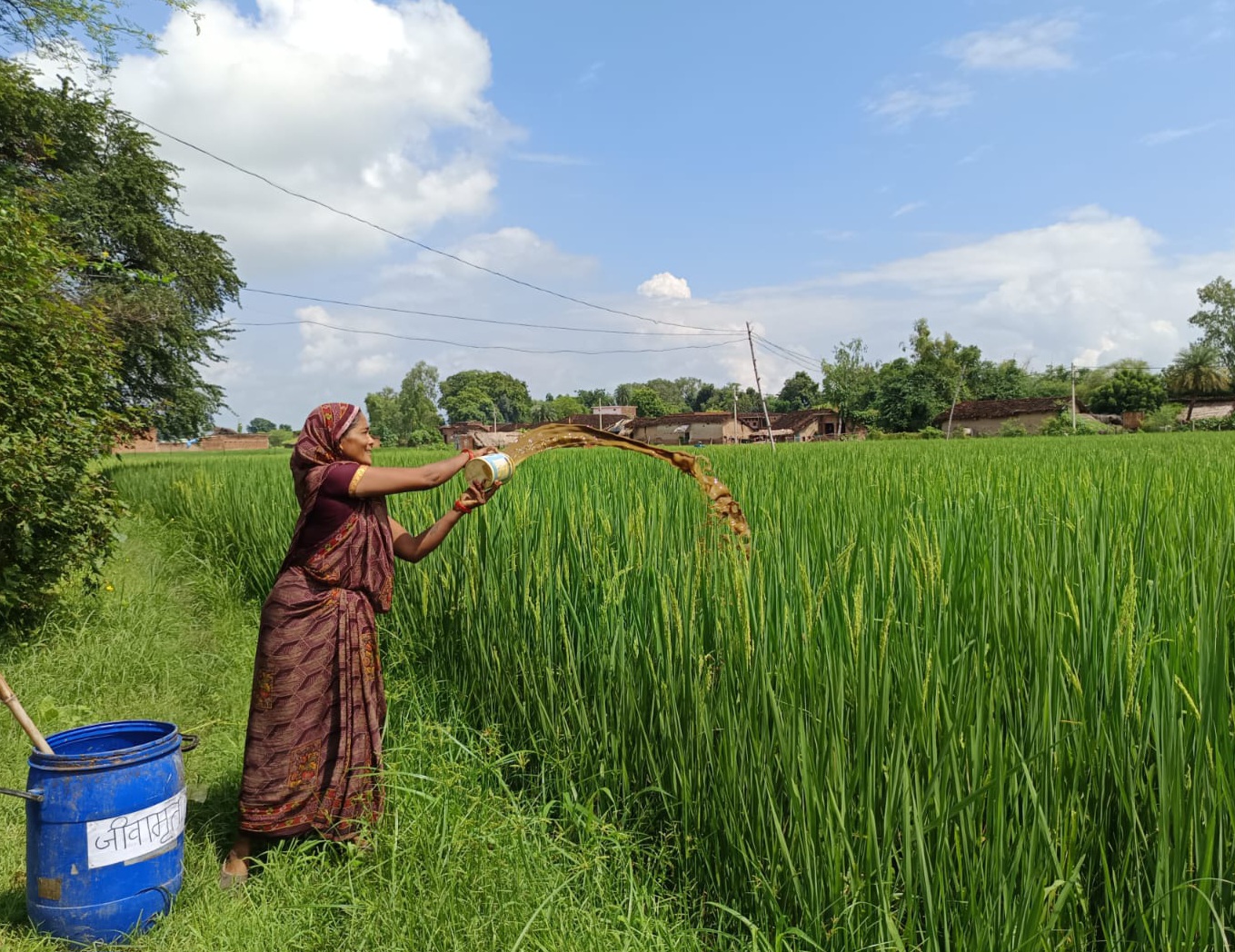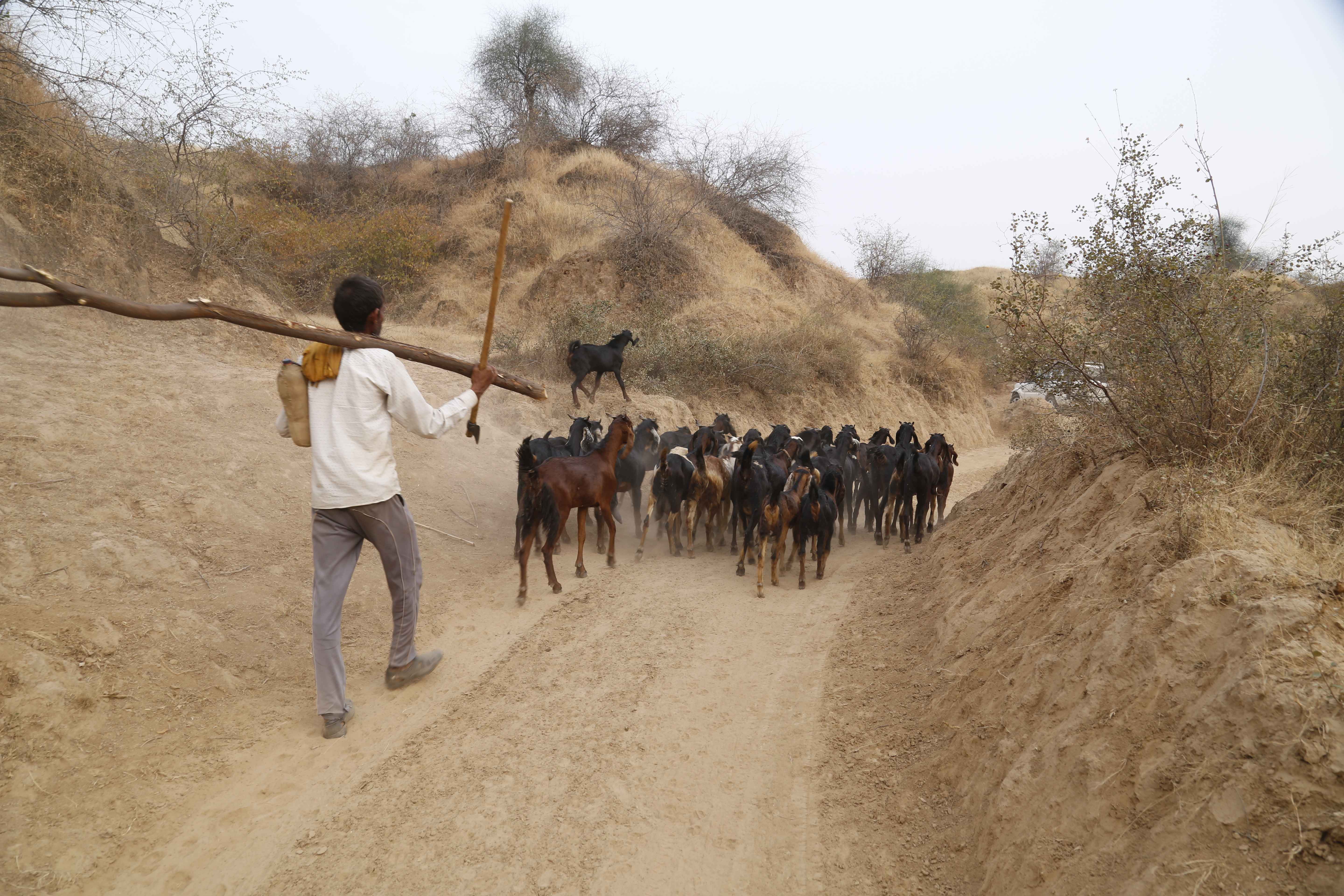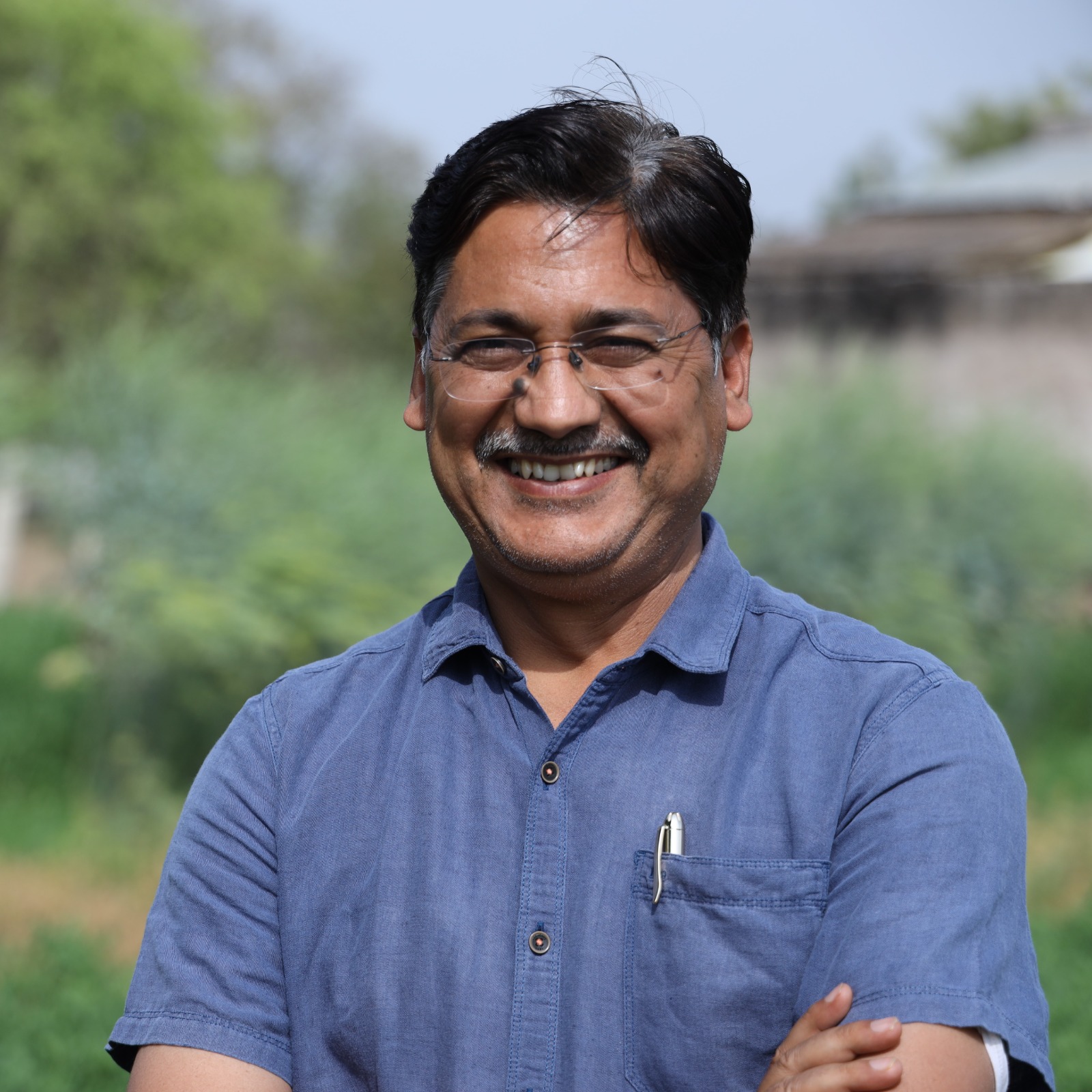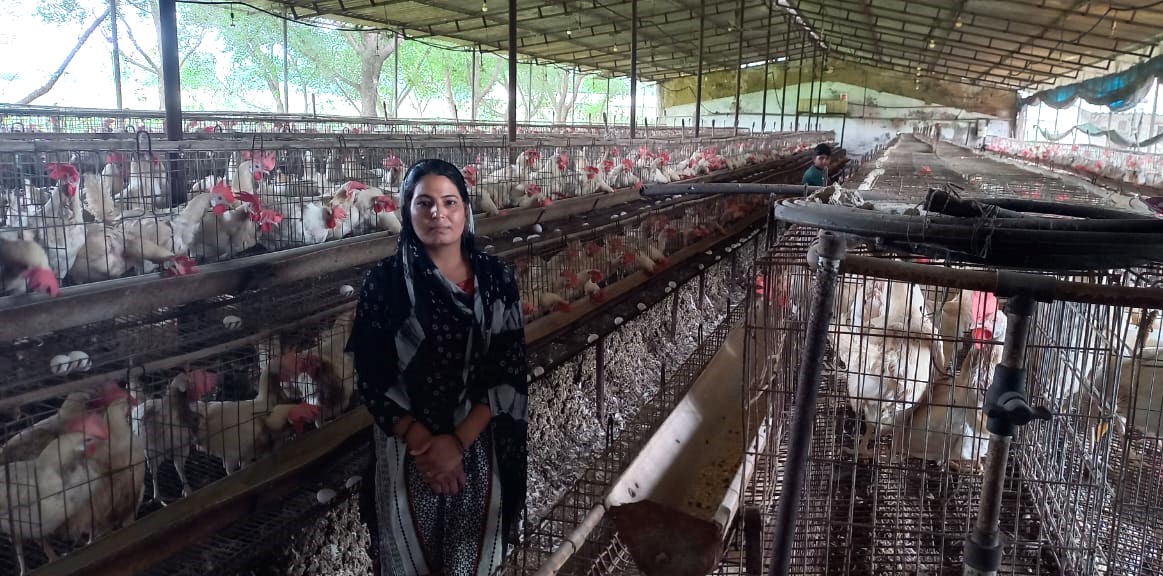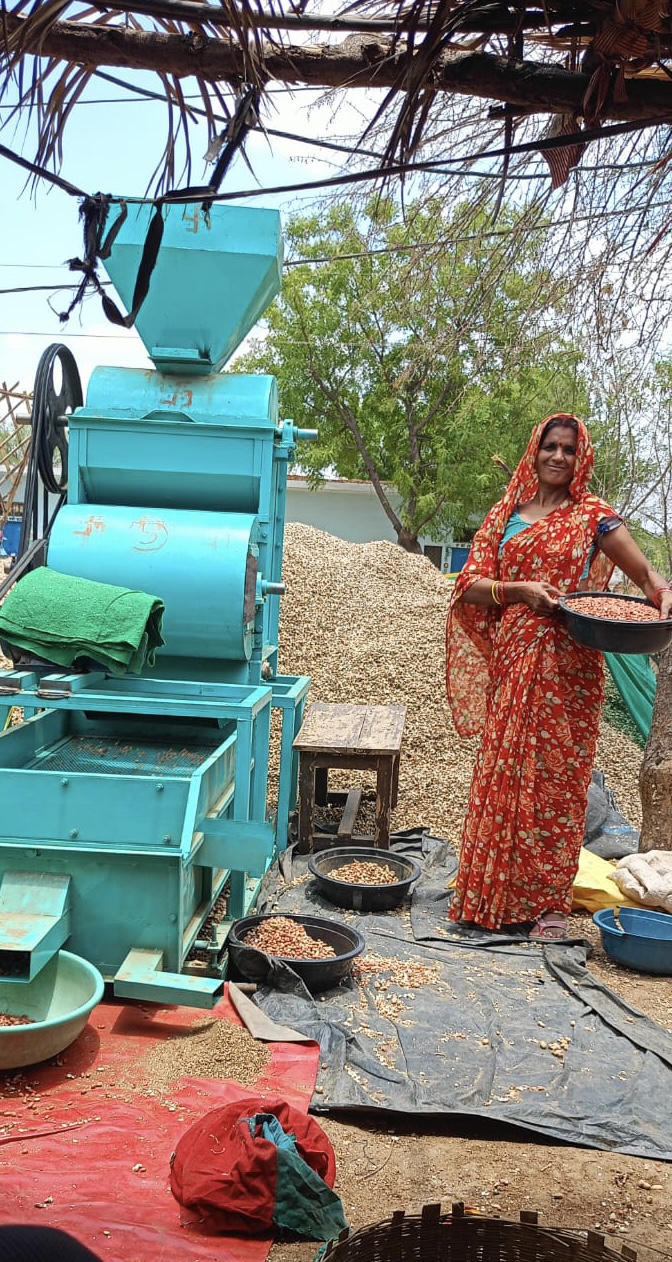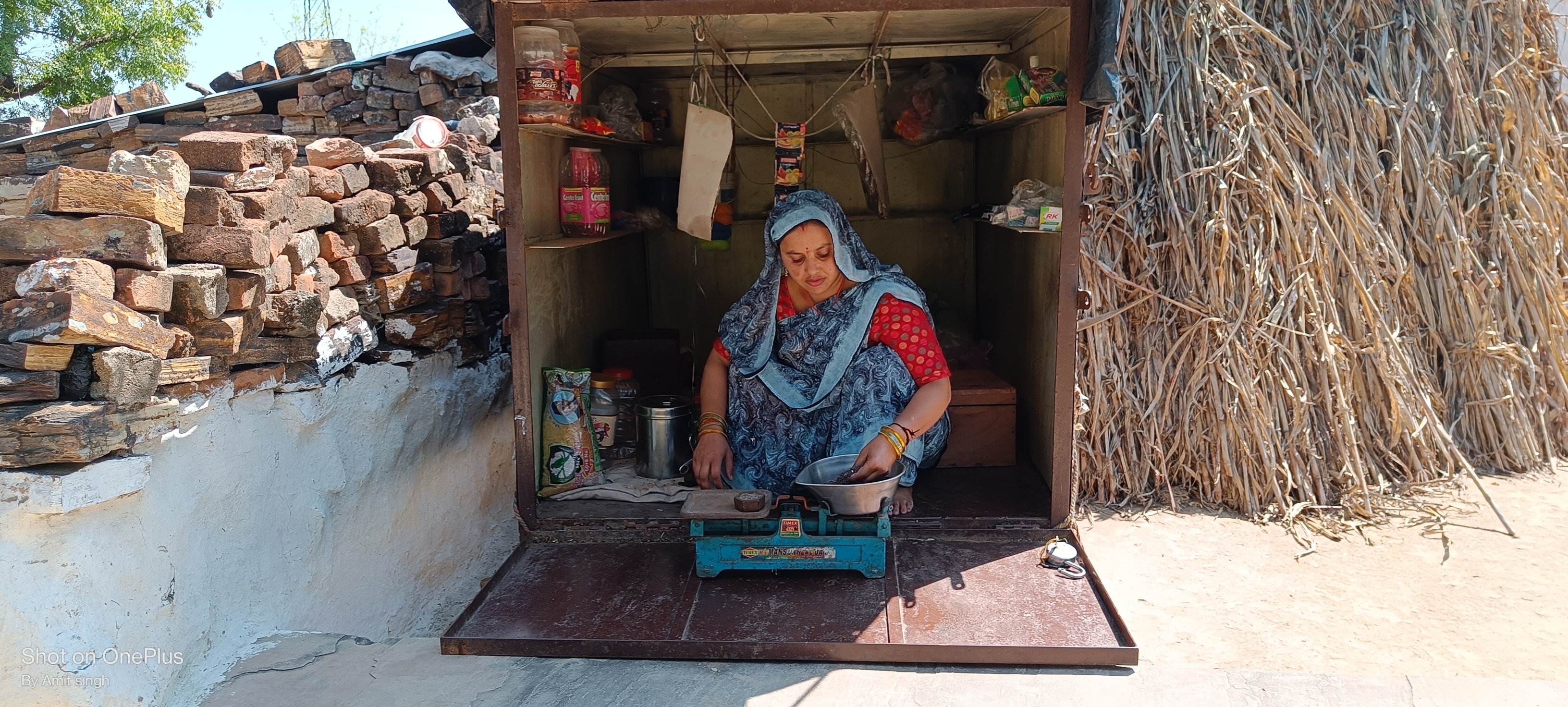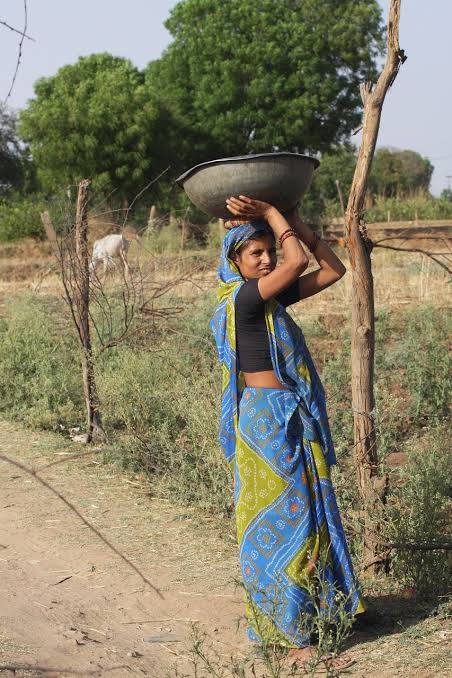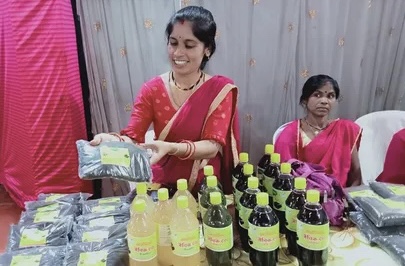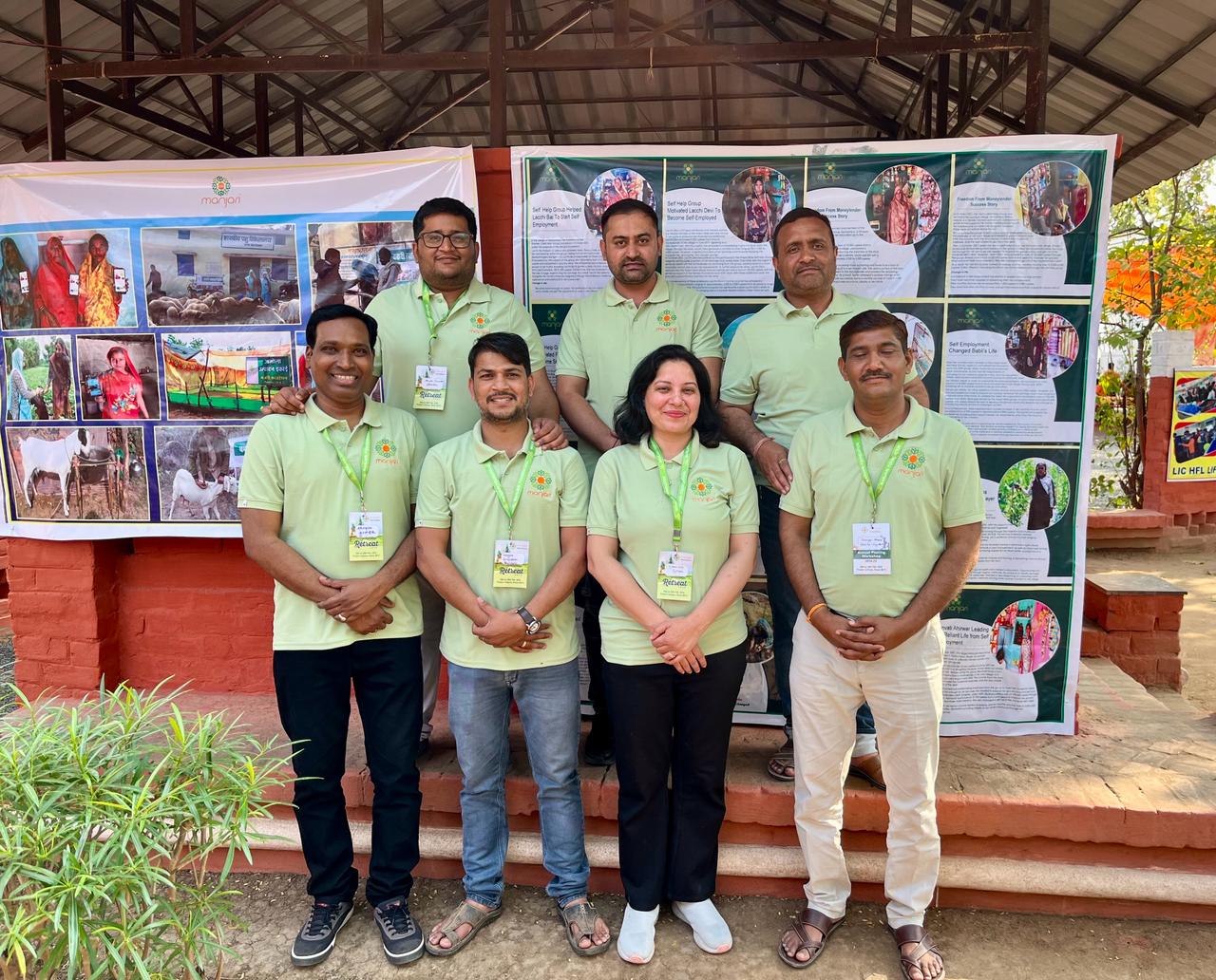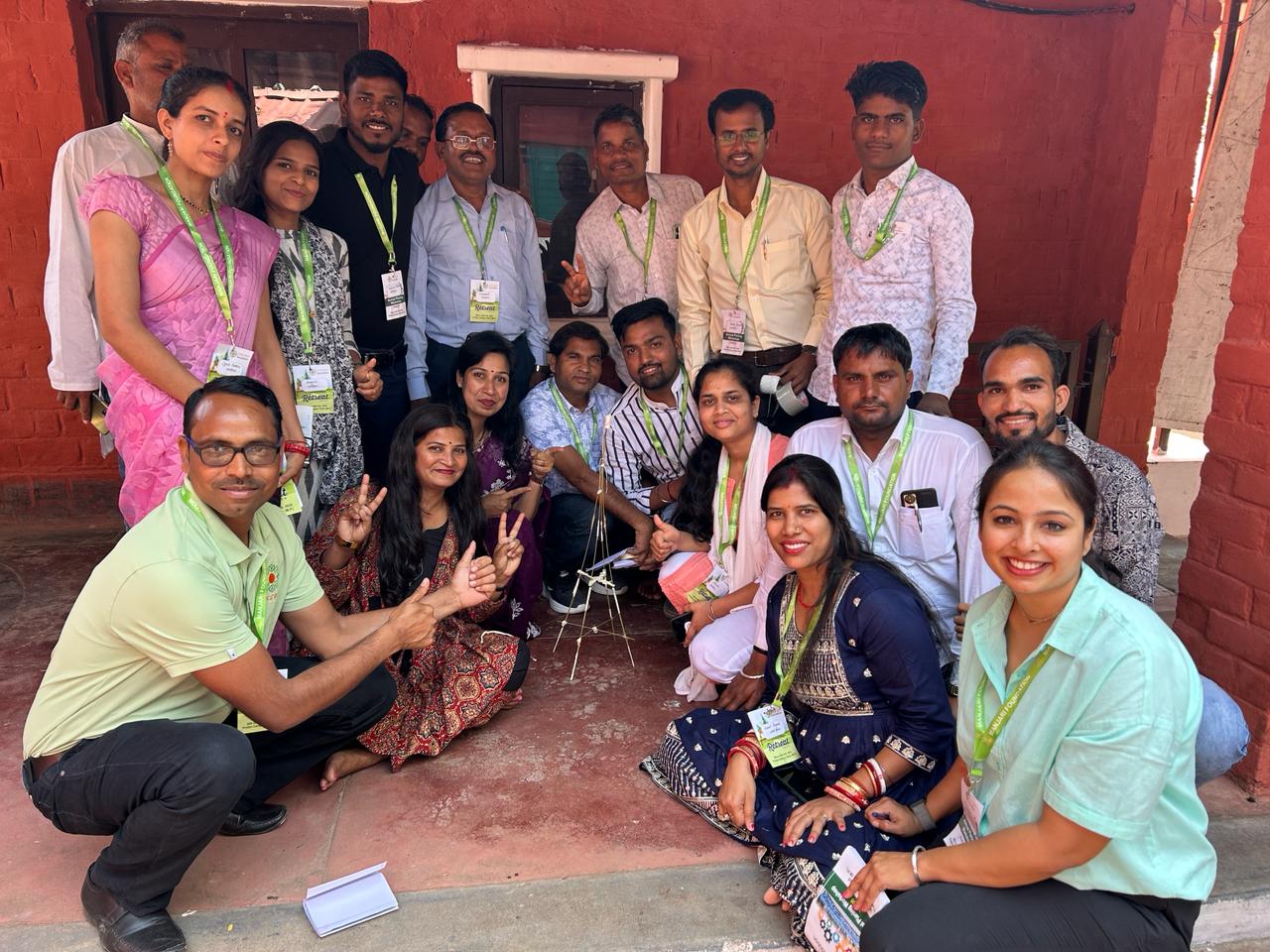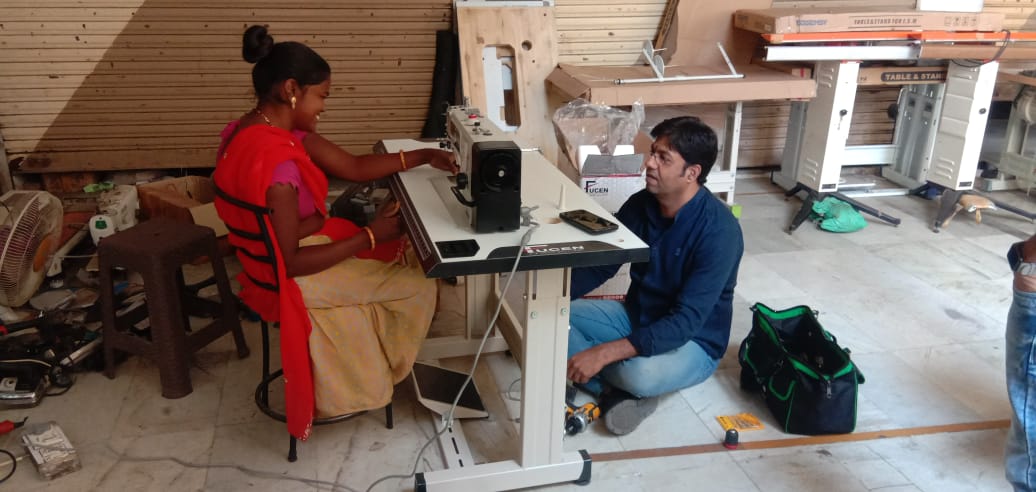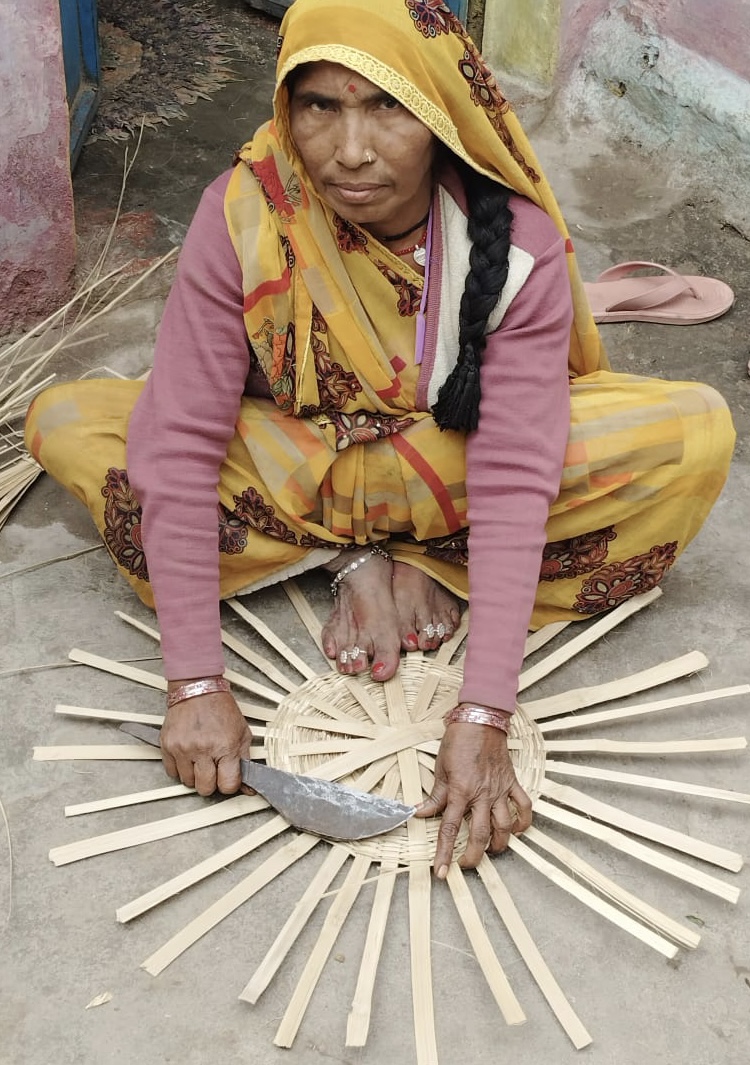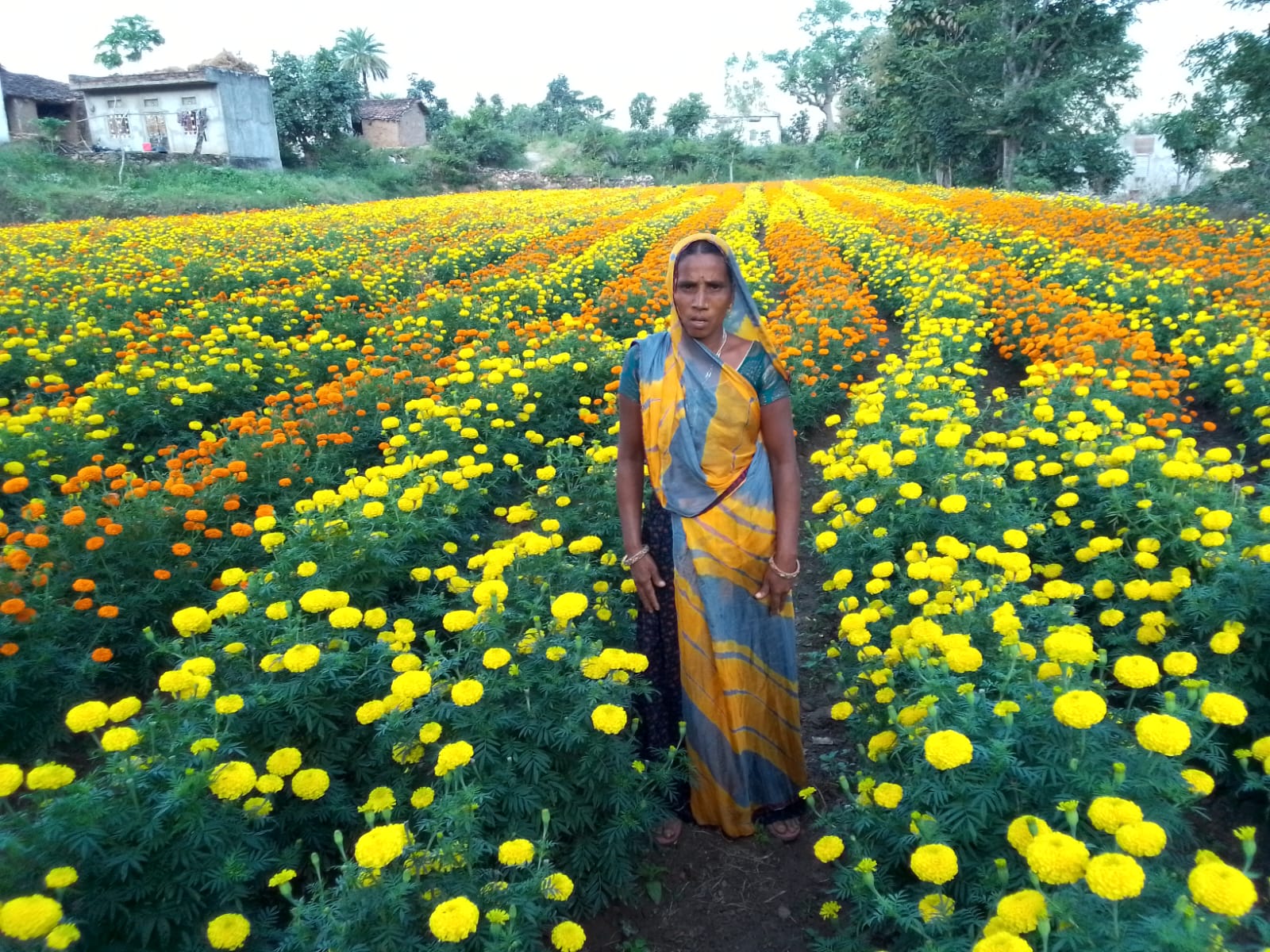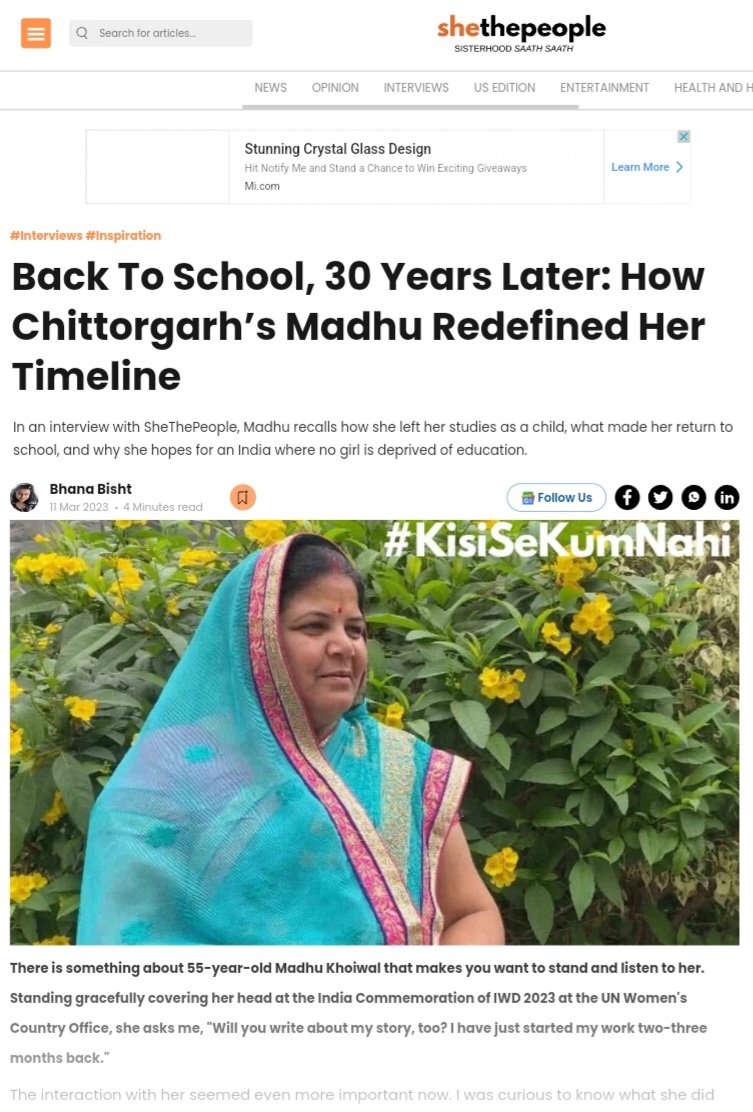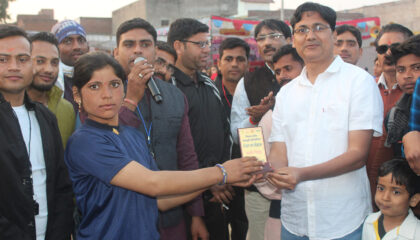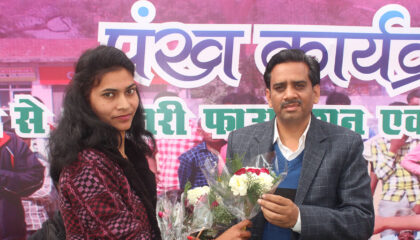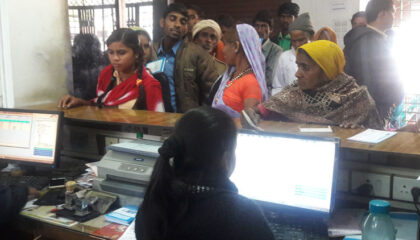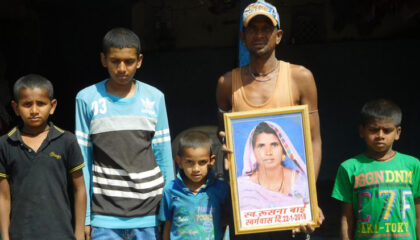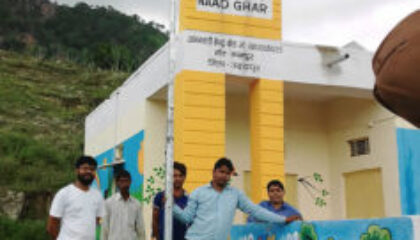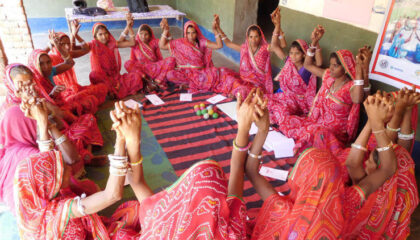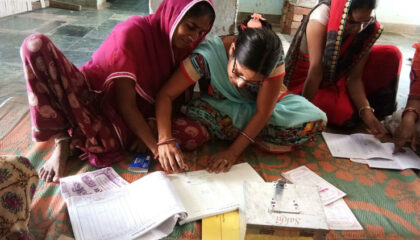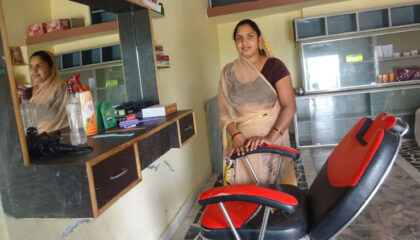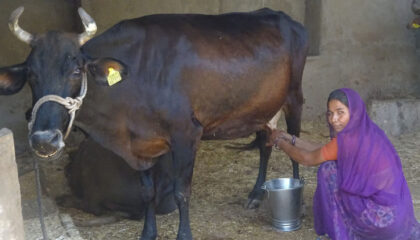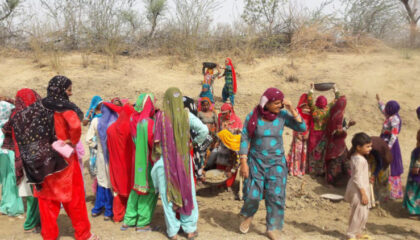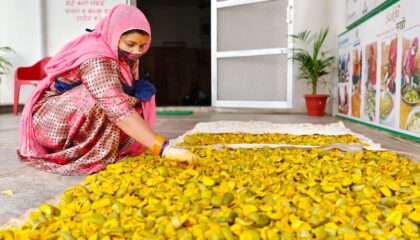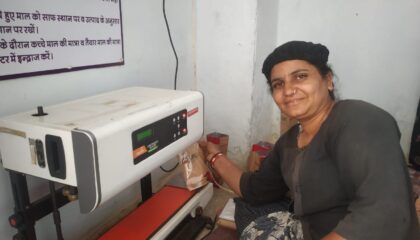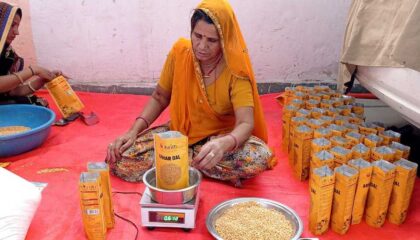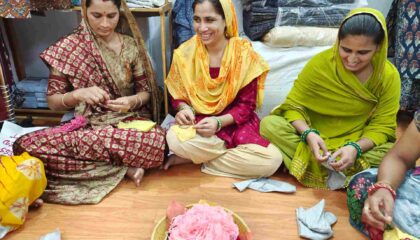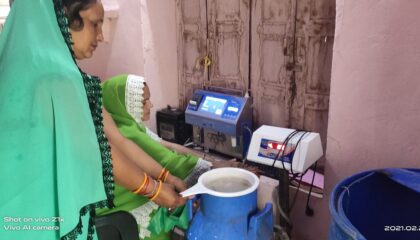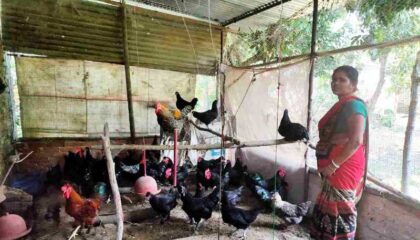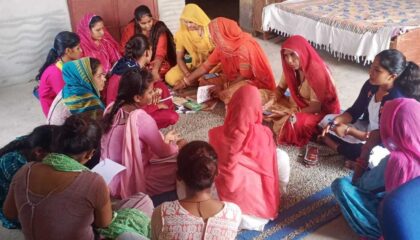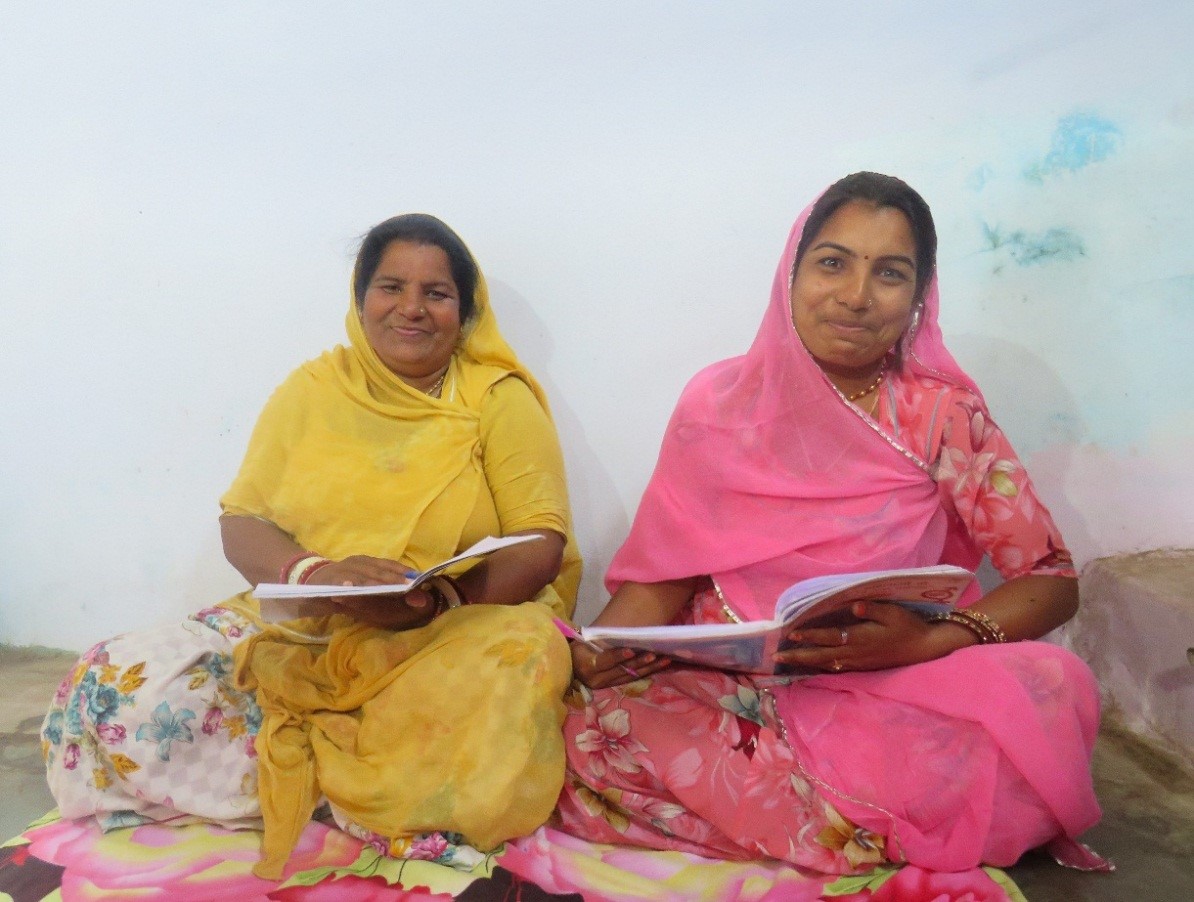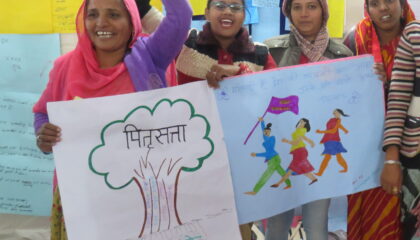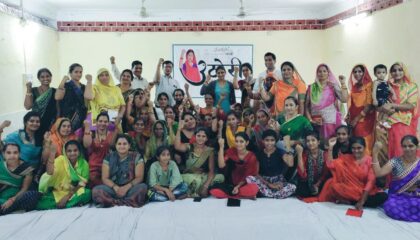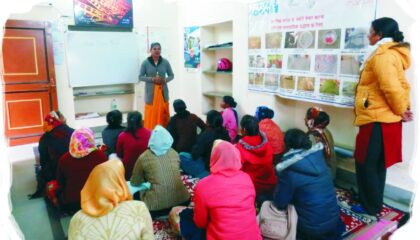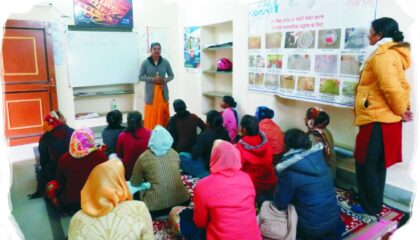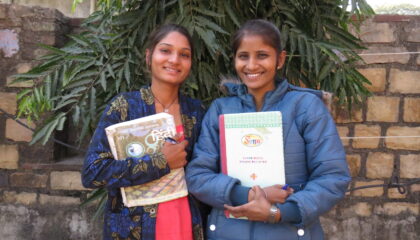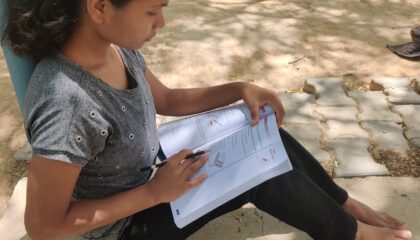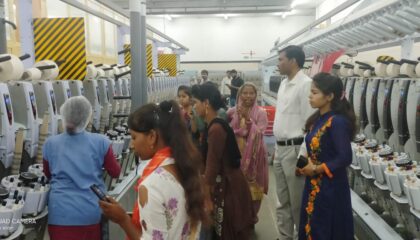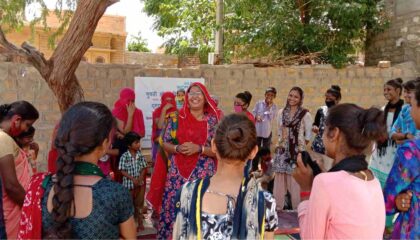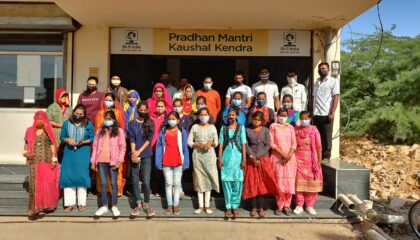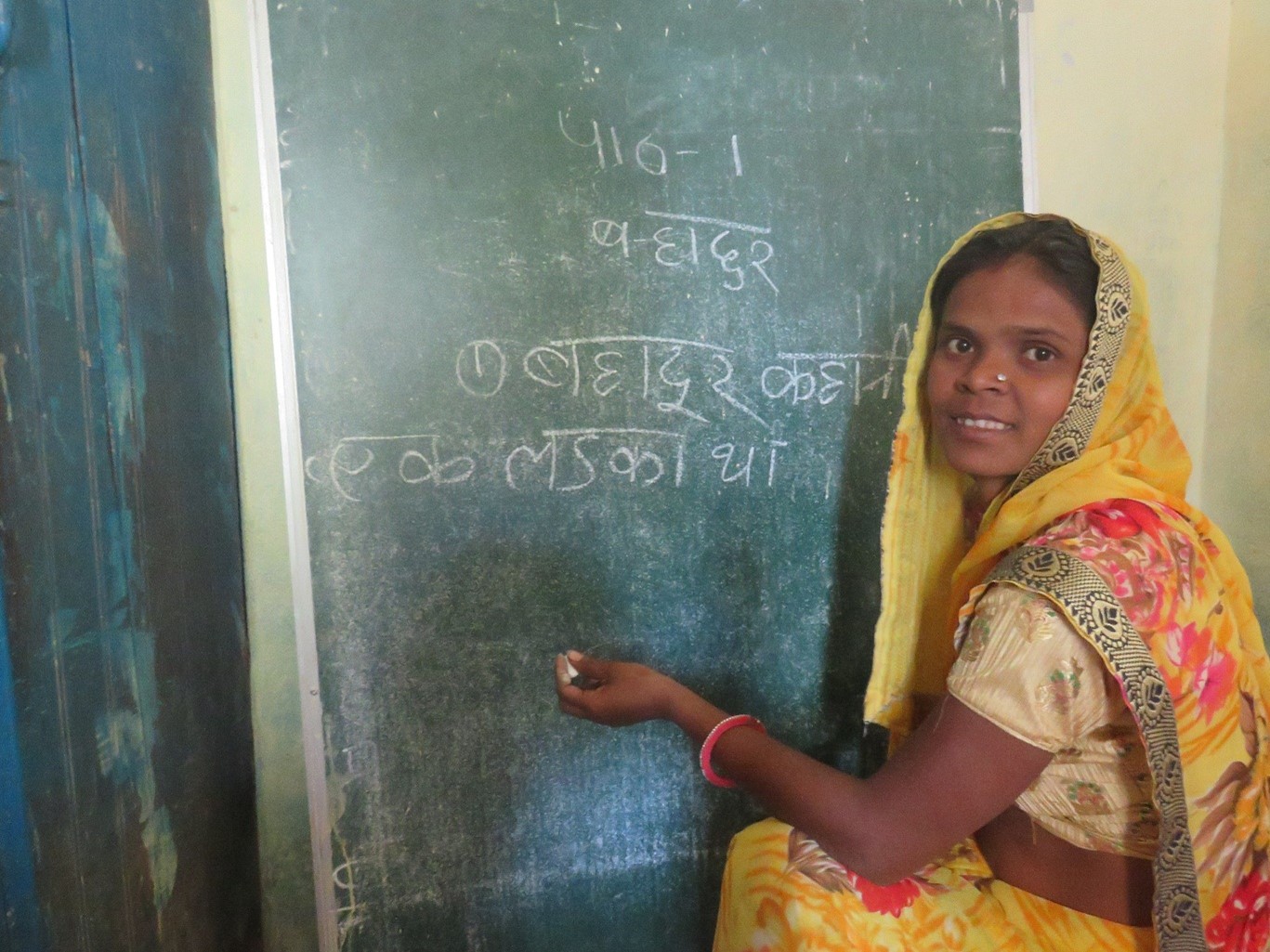Changes
The initiative has a huge contribution to reducing the drudgery of fetching water, saving 2-3 hours daily, reducing psychological pressure, reducing conflict, etc., and most importantly enhancing women’s dignity. Now, each household availed clean drinking water on a regular basis at their doorstep, and animals also got clean water whenever they required it. The initiative helped them earn their daily wages which they lost earlier in the excessive time spent in fetching water. There are several other changes that are beyond traditional measurement tools.
Drinking Water initiative
Manjari Foundation facilitated the drinking water program which helped marginalized households to access clean and safe drinking water. After that, a detailed scope of work has been created by the team. Where a detailed survey was conducted based on technical aspects which included – the identification of a suitable water source, a suitable place for constructing a water tank, length of pipe for each household, RO connection, facilities for cattle drinking water, etc. Based on the survey report and the need for water for each household which was calculated based on 60 liters of water for each person per day. After that in both villages two water tanks 32 KL in Roopura and 25 KL in Ganpat Khera villages constructed. A technical and feasibility study was done for ensuring the quality and quantity of water. Based on the laboratory report tube wells have been dug in both villages. As per the hydrologist report the water level, availability, and quality also is good. As we know and understand solar-based energy sources are always environmentally sustainable and cost-effective as well. Based on this principle we have installed the solar plant of 5HP for both villages. This is helping to reduce electricity and recurring cost for the community.
